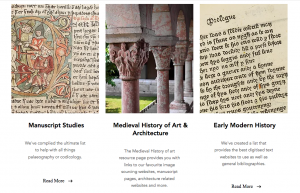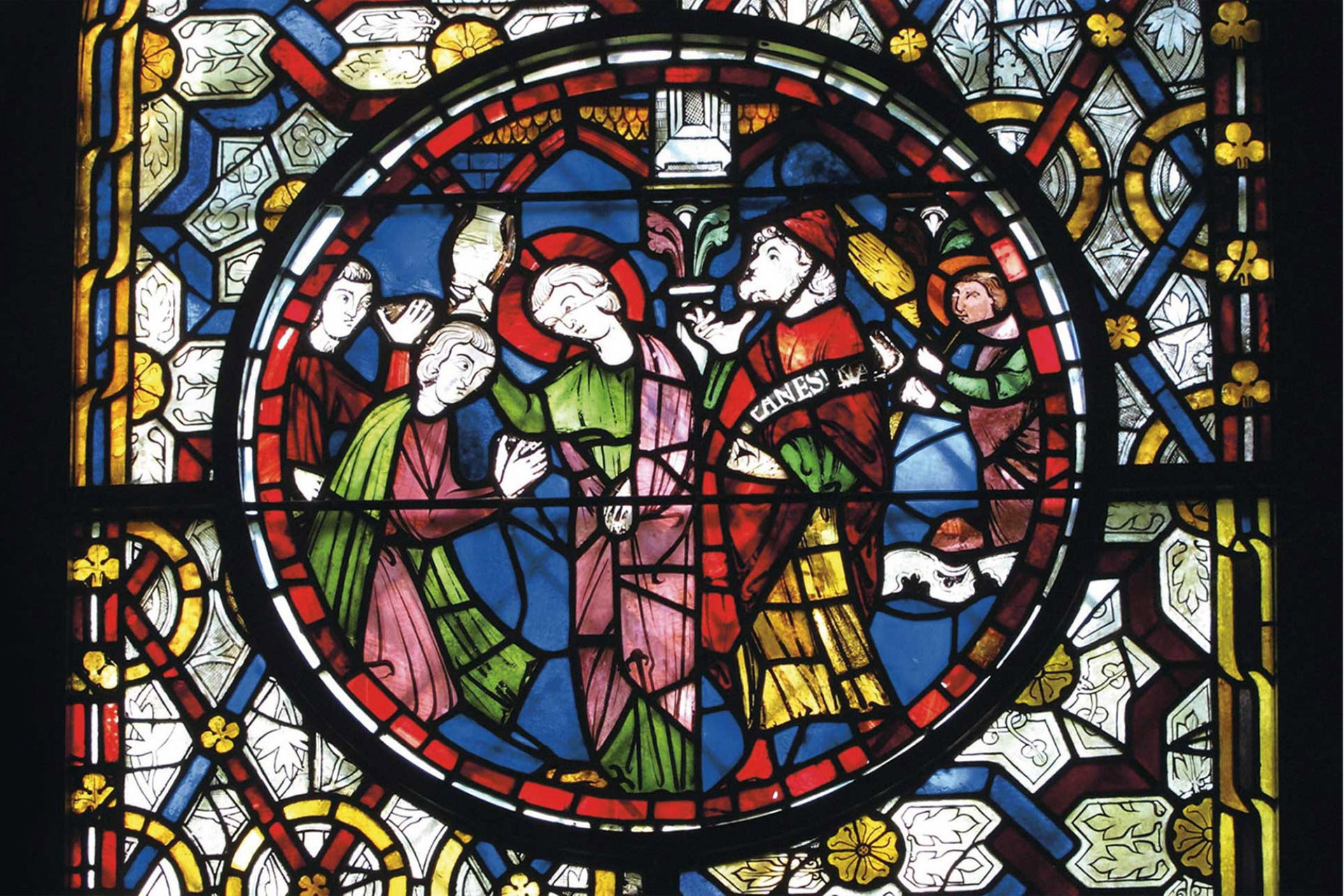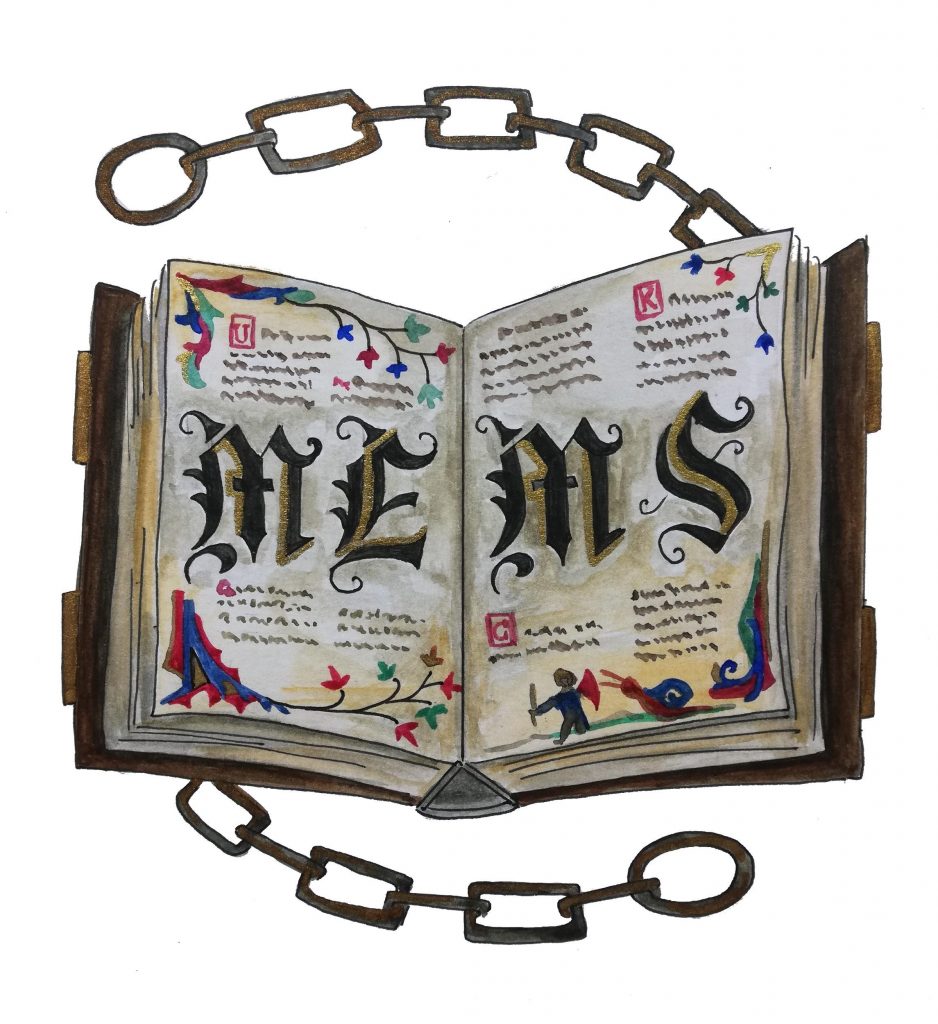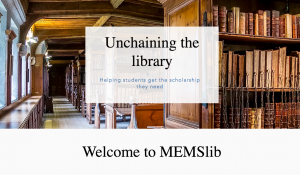With Covid-19 closing the doors of our physical libraries, a team of postgraduate students at the University of Kent’s Centre for Early Modern Studies (MEMS) set out to create an online library of digital resources and research materials designed to support their peers throughout the pandemic. Anna-Nadine Pike – one of MEMSlib founders – reflects on the hard work involved in creating this resource, and the phenomenal success it has generated since its launch in June:
“Far from days spent surrounded by precarious piles of books, coffee in KeepCups and chance conversations in corridors, academic life in 2020 has increasingly become a game of Student vs Bandwidth, thirty tabs open across three different browsers, and memorising a Zoom password because the Copy-and-Paste has already been filled by the Meeting ID. As the move into a new world of online teaching, researching and collaboration starts to become a strange norm, June has seen the launch of MEMSlib, a new, student-led platform from the Centre of Medieval and Early Modern Studies.
With the supervision of Dr David Rundle, our team (Roisin Astell, Dr Daniella Gonzalez, Anna Hegland, Emma-Louise Hill, and myself) have been working to compile a comprehensive website with an integrated forum, bringing together a range of open-access online resources to aid research beyond the library space. We have each edited pages speaking to our own research focus, be that Drama, History of Art, Literature or History, and have gathered together resources including image databases, online archives, digitised primary texts, academic research projects, and relevant blogs or media pages. Our aim was not only to showcase the range of study within MEMS, from ninth-century charters to eighteenth-century women’s writing, but to introduce students and researchers to the rich variety of materials which have been online, assisting with (and hopefully inspiring) the transition to our new working normality.
We hope that MEMSlib will facilitate communication and collaboration between researchers, ensuring that academic research in these new times remains not only possible, but rewarding. We are constantly adding to our resource pages and absolutely welcome any recommendations; we even have a designated Suggest a Resource page. We are incredibly grateful to the individuals who have already put together their own resource lists for us to include; we must thank Dr Daniel Starza Smith from Kings College London for sharing the online resources used within their MA Early Modern English Literature: Texts and Transmissions, Kent’s own Dr Edward Roberts, who is curating our interdisciplinary Early Medieval Studies page, and Dr Alison Ray from the Canterbury Cathedral Archives who, together with Dr David Rundle, has compiled our extensive Manuscript Studies section, subdivided into resources for Codicology and Palaeography. We are also in the exciting process of creating a page in collaboration with MEMS’s Dr Sheila Sweetinburgh and the History department of Canterbury Christ Church, to focus on Kent’s local history and archival materials particular to Canterbury.
 Our intention was always for this project to maintain a sense of academic community, even while our department no longer has its central campus focus; we wanted a means of keeping conversations going, and which would allow us to share the texts to which we already had physical access. The value in collectively sharing resources, and making things possible for others, has become so evident in the last few months. For this reason, it seemed important to include a Forum as part of MEMSlib, which we hope will facilitate new discussion and provide a moderated space in which to request specific reading materials, ask for assistance, and make contact with others. The Forum is protected and open to Site Members only; we’ve had a brilliant number of scholars signing up from universities and associations internationally, which really widens opportunities for sharing material, and for introducing others to MEMS at Kent!
Our intention was always for this project to maintain a sense of academic community, even while our department no longer has its central campus focus; we wanted a means of keeping conversations going, and which would allow us to share the texts to which we already had physical access. The value in collectively sharing resources, and making things possible for others, has become so evident in the last few months. For this reason, it seemed important to include a Forum as part of MEMSlib, which we hope will facilitate new discussion and provide a moderated space in which to request specific reading materials, ask for assistance, and make contact with others. The Forum is protected and open to Site Members only; we’ve had a brilliant number of scholars signing up from universities and associations internationally, which really widens opportunities for sharing material, and for introducing others to MEMS at Kent!
We’ve had an absolutely brilliant response on social media; Twitter has been our main platform for promotion, and on our launch day we gained around 500 new followers and had over 100 retweets, which are still continuing. Our launch post reached universities across the UK, Europe, the United States and Canada, and it has been incredibly rewarding to see the amount of engagement which the site has received, from university members, Archivists and Librarians, as well as independent scholars. We’re hoping to maintain this engagement with frequent Twitter posts, either showcasing individual pages, highlighting new contributions, or sharing our favourite resources with followers. We’ll be sending out regular newsletters to encourage others to contribute as well, to become part of our online community.
Although MEMSlib has a clear pertinence to our present time of remote work and library closures, our intention was always to produce something of continuing value. However the global situation develops, online-only research will continue to be a necessity, and our resource pages hope to introduce users to the (often surprisingly) rich potential which this affords. Looking ahead to the next academic year, it may be that the Forum offers a place of connectivity for incoming and researchers; the linguistic and palaeographical pages will definitely be of practical value to future MEMS Masters students. Following our first virtual MEMS Festival conference, the Centre has been reflecting on the positive implications which online academia offers for accessibility and sustainability, and we really hope that MEMSlib can form part of this.”


